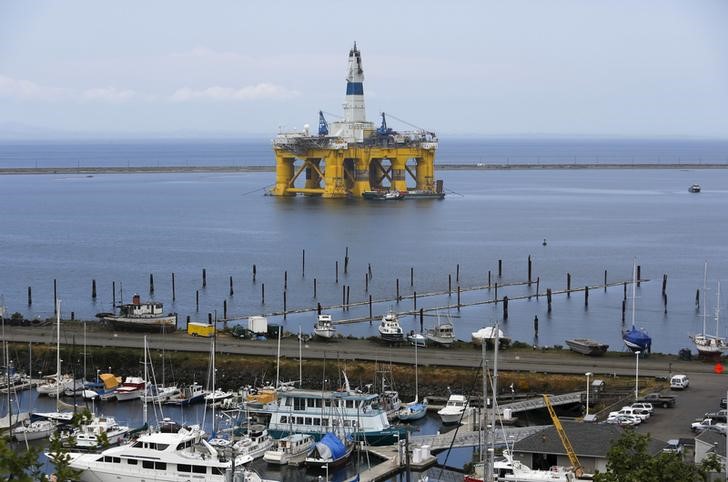By Nicole Jao
NEW YORK (Reuters) -Oil prices were little changed on Thursday as markets weighed new economic data from China against increasing supply from the Western Hemisphere.
futures settled flat at $82.96 a barrel. U.S. West Texas Intermediate crude futures ended 20 cents lower at $78.93.
China’s import and export growth beat estimates, suggesting global trade is turning a corner in a positive signal for policymakers as they try to shore up economic recovery.
But even as China posted a 5.1% rise in crude imports during the first to months of the year from a year earlier, overall imports have been falling, continuing a trend of softening purchases by the world’s biggest buyer.
“The import numbers were down substantially because they are not willing to pay full price for barrels,” said Bob Yawger, director of energy futures at Mizuho. The lack of Chinese demand failed to impress the market, he said.
The global oil market is relatively well supplied with demand growth slowing and supply increasing from the Americas, the head of the International Energy Agency’s (IEA) oil markets and industry division told Reuters on Thursday.
Oil inventories in the U.S. rose last week for a sixth week in a row.
“The market continues to be pulled around demand concerns in China, on the one hand, and increasing supply out of the Western Hemisphere,” said Andrew Lipow, president of Lipow Oil Associates.
The markets were bracing for the likelihood that the Federal Reserve could delay its first U.S. interest rate cut to the second half of this year, which boosted the dollar, according to a Reuters poll of foreign exchange strategists.
A strong greenback dents demand for dollar-denominated oil among buyers using other currencies.
On Wednesday, Fed Chair Jerome Powell said the central bank still expects to reduce its benchmark interest rate this year. On Thursday, the European Central Bank kept its main interest rate unchanged at 4.0% as expected.
Fuel consumption in India, the world’s third-biggest oil importer and consumer, rose 5.7% year-on-year in February, aided by strong factory activity.
Read the full article here





